 Virtually anyone can get lost in a novel. It is possible and even likely that you will get lost in a 300-page book with characters and feelings, jokes and sadness, love, lust, and more. During the time that you are reading it, those characters become your friend. You see their lives and a great author can make them step out of the pages. The challenge comes when you attempt to read or write poetry. Poetry is a play on words. The writer has only a short amount of space to tell you a complete story and have you understand the entire story. It is for this reason that poetry also holds a spot in the heart of many. It is also why so many areas have a program like Poetry-By-The-Sea, where poets and readers can enjoy it to the fullest.
Virtually anyone can get lost in a novel. It is possible and even likely that you will get lost in a 300-page book with characters and feelings, jokes and sadness, love, lust, and more. During the time that you are reading it, those characters become your friend. You see their lives and a great author can make them step out of the pages. The challenge comes when you attempt to read or write poetry. Poetry is a play on words. The writer has only a short amount of space to tell you a complete story and have you understand the entire story. It is for this reason that poetry also holds a spot in the heart of many. It is also why so many areas have a program like Poetry-By-The-Sea, where poets and readers can enjoy it to the fullest.
The Beauty of Poetry
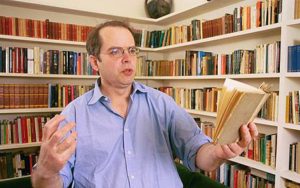 There are many who say that poetry is the most powerful form of writing to have ever existed. It is a play on words that can change the meaning of a word that we at one time believed we understood. Poetry in its purest form can make you feel the writer has implied love, lust, or sorrow without ever actually saying that they were feeling it. As you read through poetry, you must allow yourself to not see the words, but feel their hidden meanings. It is a journey that you must take.
There are many who say that poetry is the most powerful form of writing to have ever existed. It is a play on words that can change the meaning of a word that we at one time believed we understood. Poetry in its purest form can make you feel the writer has implied love, lust, or sorrow without ever actually saying that they were feeling it. As you read through poetry, you must allow yourself to not see the words, but feel their hidden meanings. It is a journey that you must take.
The Writer’s Journey
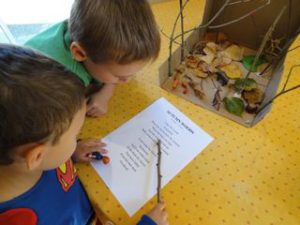 As a writer of poetry, you must allow yourself to show the emotions that we all seem to suppress out of fear that no one will ever fully understand them. Your mind and the words must simply flow while you let go of your burdens, your lust, your love, and your soul in the hopes that someone else will see the words and understand your hidden meanings. You must be able to take simple words and put them into a sequence that is not something we are used to hearing. This creates a miracle in how the reader will respond and even what they will feel because of what you write.
As a writer of poetry, you must allow yourself to show the emotions that we all seem to suppress out of fear that no one will ever fully understand them. Your mind and the words must simply flow while you let go of your burdens, your lust, your love, and your soul in the hopes that someone else will see the words and understand your hidden meanings. You must be able to take simple words and put them into a sequence that is not something we are used to hearing. This creates a miracle in how the reader will respond and even what they will feel because of what you write.
Words Expressed, Words Treasured by All
As you look back throughout history, there are many famous poets. Elizabeth Barrett Browning with her “How do I love thee? Let me count the ways.” She was born in 1806 and died in 1861, but most every living soul today has heard her words. Emily Dickinson, whose poems you may not know, is still a name that you have likely heard. She was alive only from 1830-1886. The same is true for Edgar Allan Poe. If you want to venture further into history, you need only look as far as William Shakespeare, who lived from 1564-1616 and reaches out to us from beyond the grave through theater performances and classroom studies. Were they famous in their own time or are their words more important to us now? Does it really matter? They have a voice that is louder than the person sitting next to you. You simply have to listen to it and embrace what it may be saying to you.

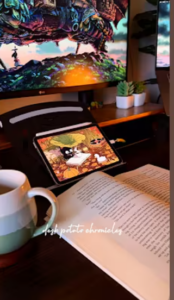 Beyond pretzels, reading nook snacks run the gamut from sweet to savory, depending on your mood and literary flavor of the day. Fresh fruit like apple slices or berries offers a burst of natural sweetness and a refreshing counterpoint to rich or dense texts. Dark chocolate squares or homemade trail mix bring a bit of indulgence without derailing focus, perfect for readers who settle in for hours with poetry anthologies or layered prose. For those who love a warm, soothing element, a cup of herbal tea, hot chocolate, or even a lightly brewed coffee pairs beautifully with soft verses or quiet storytelling. The warmth and aroma help relax the body while sharpening the mind—an ideal combo for absorbing metaphor and meaning. Cheese and crackers, nuts, and crunchy granola bars also make great companions, offering texture and flavor without being too heavy or messy.
Beyond pretzels, reading nook snacks run the gamut from sweet to savory, depending on your mood and literary flavor of the day. Fresh fruit like apple slices or berries offers a burst of natural sweetness and a refreshing counterpoint to rich or dense texts. Dark chocolate squares or homemade trail mix bring a bit of indulgence without derailing focus, perfect for readers who settle in for hours with poetry anthologies or layered prose. For those who love a warm, soothing element, a cup of herbal tea, hot chocolate, or even a lightly brewed coffee pairs beautifully with soft verses or quiet storytelling. The warmth and aroma help relax the body while sharpening the mind—an ideal combo for absorbing metaphor and meaning. Cheese and crackers, nuts, and crunchy granola bars also make great companions, offering texture and flavor without being too heavy or messy. The surge in popularity of reading nooks reflects broader trends in how people approach literature and rest. As many lifestyles become busier and more digitally saturated, carving out a quiet, dedicated space for reading has become an intentional act of self-care. These spaces invite readers to disconnect from notifications and reconnect with language in its purest form. Poetry, in particular, has seen a resurgence among young readers who are drawn to its brevity, emotional resonance, and rhythmic language. In a world where attention is often pulled in a dozen directions at once, short poems offer concentrated doses of meaning that can be savored between sips of tea or bites of pretzels.
The surge in popularity of reading nooks reflects broader trends in how people approach literature and rest. As many lifestyles become busier and more digitally saturated, carving out a quiet, dedicated space for reading has become an intentional act of self-care. These spaces invite readers to disconnect from notifications and reconnect with language in its purest form. Poetry, in particular, has seen a resurgence among young readers who are drawn to its brevity, emotional resonance, and rhythmic language. In a world where attention is often pulled in a dozen directions at once, short poems offer concentrated doses of meaning that can be savored between sips of tea or bites of pretzels. When you think about the edge of the sea, what do you think about the most? Beaches, water, waves, and even nature is usually at the top of the list for most people. It is an area of the world that is amazing to see, and the experience is only enhanced with poetry readings. That is, provided you take care of fogging next to the sea first before your guests and readers arrive.
When you think about the edge of the sea, what do you think about the most? Beaches, water, waves, and even nature is usually at the top of the list for most people. It is an area of the world that is amazing to see, and the experience is only enhanced with poetry readings. That is, provided you take care of fogging next to the sea first before your guests and readers arrive. The edge of the sea is where you will find a large variety of people soaking up sun and fun. It is also an appealing place for a variety of critters, both wanted and unwanted by the humans who are trying to enjoy their day.
The edge of the sea is where you will find a large variety of people soaking up sun and fun. It is also an appealing place for a variety of critters, both wanted and unwanted by the humans who are trying to enjoy their day. You may not be able to control where the jellyfish swim or the sharks feed, but you can help yourself and your guests feel comfortable on the shore. You can help to eliminate pesky insects that may bite and sting. This includes gnats, cow flies or yellow flies, biting house flies, and even the mosquitoes, which could easily put an early end to a fantastic day at sea.
You may not be able to control where the jellyfish swim or the sharks feed, but you can help yourself and your guests feel comfortable on the shore. You can help to eliminate pesky insects that may bite and sting. This includes gnats, cow flies or yellow flies, biting house flies, and even the mosquitoes, which could easily put an early end to a fantastic day at sea.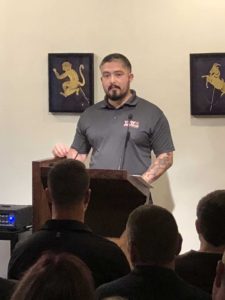 A poetry reading can be held anywhere. It can happen in a coffee shop, auditorium, and more. The key to it all comes down to where the reader is going to read. A stage is a good idea, but mostly the person reading needs a place that will set them apart from the listeners. In most cases, this means a podium. If you want to host a poetry reading or allow people the freedom to express themselves from center stage, you may want to consider building a podium for them to use.
A poetry reading can be held anywhere. It can happen in a coffee shop, auditorium, and more. The key to it all comes down to where the reader is going to read. A stage is a good idea, but mostly the person reading needs a place that will set them apart from the listeners. In most cases, this means a podium. If you want to host a poetry reading or allow people the freedom to express themselves from center stage, you may want to consider building a podium for them to use. A podium can have several features that range from basic to high-tech. Even the most basic will have a microphone, sound control options, and a slanted table for you to put the item that you plan to read aloud. However, others may not have a microphone, but include cubby holes on the backside of them where the reader can access them easily. Some podiums also have built-in tablets so that you can scroll through your notes while you are giving your speech or reading a book of poetry.
A podium can have several features that range from basic to high-tech. Even the most basic will have a microphone, sound control options, and a slanted table for you to put the item that you plan to read aloud. However, others may not have a microphone, but include cubby holes on the backside of them where the reader can access them easily. Some podiums also have built-in tablets so that you can scroll through your notes while you are giving your speech or reading a book of poetry. The size of your podium will depend mostly on where it will be positioned and who will be using it. Most podiums are going to be between waist and chest high. These are rather basic. Often, just a pedestal to put the speaker front and center. You should build a cabinet that measures approximately 48”x20”. You can cut one end at an angle for the top if you want to or build a second box for that part. The raised platform table can be made of
The size of your podium will depend mostly on where it will be positioned and who will be using it. Most podiums are going to be between waist and chest high. These are rather basic. Often, just a pedestal to put the speaker front and center. You should build a cabinet that measures approximately 48”x20”. You can cut one end at an angle for the top if you want to or build a second box for that part. The raised platform table can be made of  Many poetry festivals or poetry readings are held in locations that are near a large body of water. The sea is one of the most profound places to experience poetry because of its natural ambiance and mood enhancement ability. There is something relaxing about hearing the words while you listen to the crash of waves or the lapping of water against a sandy shore. However, not all areas that can benefit from having a reading can be located near the sea. Physically, it is not possible for areas in the middle of the U.S. to have a beach. If you can’t make it to the sea, there are other viable and enjoyable options.
Many poetry festivals or poetry readings are held in locations that are near a large body of water. The sea is one of the most profound places to experience poetry because of its natural ambiance and mood enhancement ability. There is something relaxing about hearing the words while you listen to the crash of waves or the lapping of water against a sandy shore. However, not all areas that can benefit from having a reading can be located near the sea. Physically, it is not possible for areas in the middle of the U.S. to have a beach. If you can’t make it to the sea, there are other viable and enjoyable options.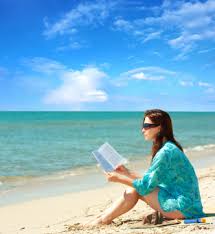 Everyone should experience poetry reading near an ocean at least once in their lifetime. However, if it is not possible for you to be near an ocean, you do have other options. There are streams, lakes, fountains, and other areas where water can bubble around you and fuel your senses. If it is just you and a few poetry-loving friends, you may also consider an above ground swimming pool to create a relaxing setting. Relaxing on floats or simply listening to the water as it bubbles out of the filter will be enough to relax with. To see it for yourself, you may consider looking at a
Everyone should experience poetry reading near an ocean at least once in their lifetime. However, if it is not possible for you to be near an ocean, you do have other options. There are streams, lakes, fountains, and other areas where water can bubble around you and fuel your senses. If it is just you and a few poetry-loving friends, you may also consider an above ground swimming pool to create a relaxing setting. Relaxing on floats or simply listening to the water as it bubbles out of the filter will be enough to relax with. To see it for yourself, you may consider looking at a  No matter where you are, poetry has the ability to move you to another world within this world. You may laugh, you may feel saddened, and you may even experience a feeling of love by reading it. Anything that you do to further enhance the experience is going to make it more impressive. Whether it is a natural stream, a raging river, or a well landscaped swimming pool, we promise that you will feel all of your emotions come alive based on the poems that you hear or read.
No matter where you are, poetry has the ability to move you to another world within this world. You may laugh, you may feel saddened, and you may even experience a feeling of love by reading it. Anything that you do to further enhance the experience is going to make it more impressive. Whether it is a natural stream, a raging river, or a well landscaped swimming pool, we promise that you will feel all of your emotions come alive based on the poems that you hear or read. Poetry is something that most people either love or hate. They either feel it inside of them or they don’t. It does not appeal to only certain genders, age groups, or races. A woman’s favorite poem may also be a favorite for a man she has never met before. It is just something that is inside of them. For this reason, it is fair to say that poetry comes in all shapes and sizes.
Poetry is something that most people either love or hate. They either feel it inside of them or they don’t. It does not appeal to only certain genders, age groups, or races. A woman’s favorite poem may also be a favorite for a man she has never met before. It is just something that is inside of them. For this reason, it is fair to say that poetry comes in all shapes and sizes.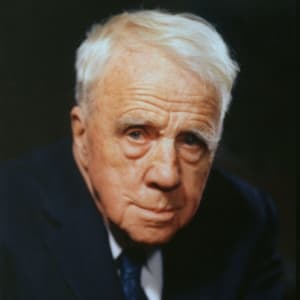 Poetry is applicable to all humans. It can be inside of you regardless of how big, tall, petite, or rough around the edges you may be. Many poems have surpassed the test of time. They were written during a time that no longer applies to our situation today, but people still feel that they are talking about something that is going on in their life today. For instance, “The Tiger” by William Blake (1757-1827). The true meaning of the poem is subject to interpterion by the reader, but it asks the question why God, who is everything good, would allow evil in the world. “If” by Rudyard Kipling is also a great poem that points out the biggest word in the English language, “IF”. What if this happened that way? What If it may have happened in another way. As human beings, we can relate to both of these poems and they will continue to thrive because of it.
Poetry is applicable to all humans. It can be inside of you regardless of how big, tall, petite, or rough around the edges you may be. Many poems have surpassed the test of time. They were written during a time that no longer applies to our situation today, but people still feel that they are talking about something that is going on in their life today. For instance, “The Tiger” by William Blake (1757-1827). The true meaning of the poem is subject to interpterion by the reader, but it asks the question why God, who is everything good, would allow evil in the world. “If” by Rudyard Kipling is also a great poem that points out the biggest word in the English language, “IF”. What if this happened that way? What If it may have happened in another way. As human beings, we can relate to both of these poems and they will continue to thrive because of it.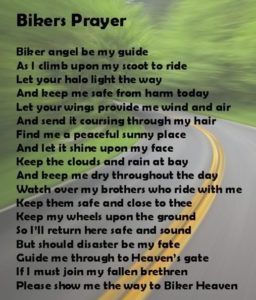 Today’s poetry takes on many different forms. Songwriters use poems to express their deepest thoughts. It does not matter whether they prefer to write country, pop, rap, or metal. The truth is, some of the biggest, baddest looking bikers may also write poetry or lyrics for songs when they are alone and not on their bikes. Can you imagine seeing men sitting around wearing
Today’s poetry takes on many different forms. Songwriters use poems to express their deepest thoughts. It does not matter whether they prefer to write country, pop, rap, or metal. The truth is, some of the biggest, baddest looking bikers may also write poetry or lyrics for songs when they are alone and not on their bikes. Can you imagine seeing men sitting around wearing